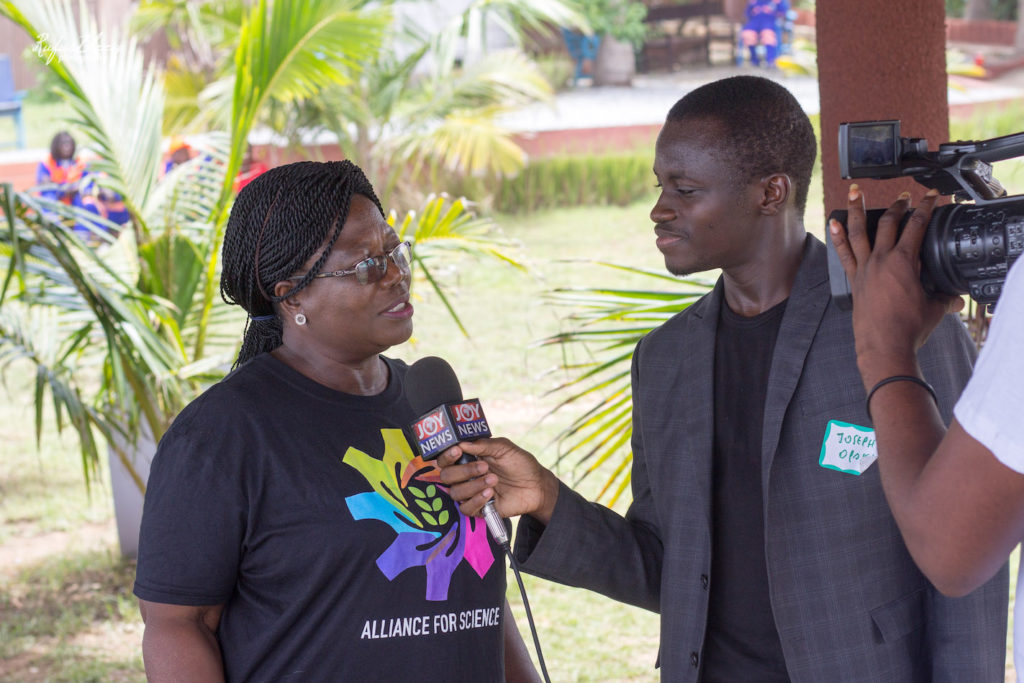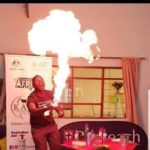As we reflect this week on the first five years of the Alliance for Science, it’s apparent our greatest successes stem from the efforts of our Global Leadership Fellows Program alumni. As I previewed in my previous post, the Fellows are the core of our organization, using the “fire in their bellies”* to drive our mission forward. I’d like you to meet a few Fellows who are all fired up.
Building a social movement
Upon returning to Dhaka after his fellowship, Md. Arif Hossain (GLFP ’15 Bangladesh) took on a communications role with the Bt brinjal project in his home country. He quickly began collecting and amplifying the stories of smallholder farmers who are experiencing the tremendous environmental, health and economic benefits of Bt brinjal (eggplant). Arif is a phenomenal photographer and has spent the past four years visually documenting the journey of those sentinel farmers—photos he is eager to share with storytellers everywhere.

In 2018, with an initial grant of $1.2M, Arif launched a new communications initiative, Farming Future Bangladesh—a sister institution in our global coalition. The FFB team is reaching out to journalists, nutrition workers, young scientists and faith leaders to ensure that science and evidence inform the nation’s decision-making around agricultural biotechnology. Arif and the FFB team first seeded and are now growing a successful social movement in Bangladesh. This is দুর্নিবার or “durnibar.”
Amplifying voices
Firebrand communicator Patricia Nanteza (GFLP ’15 Uganda) has a clear message to share with the world: “Let Africa Speak for herself.” Patricia is on a global mission to help us understand the implications of our actions—how the stances one takes and the choices one makes in the US or Europe reverberate internationally. Patricia has been sharing that compelling message on stages around the world, as well as through blogs, videos, social media and other platforms.
She is now helping scientists across Africa develop and share their own personal stories—stories of motivation, struggle and hope. This year she launched Science Stories Africa —a live story-telling platform where audiences can discover the humanity and humor of scientists from across the continent. Patricia is not only bravely stepping up on the global stage to share her message, but creating a place for our trusted public sector scientists to share their vulnerabilities, successes and challenges. This is “kajanja.”

Taking it to the top
Pablo Orozco (GLFP ’16 Guatemala), a lawyer specializing in international law, has taken the AfS mission to the grasstops, working with the global bodies that govern the use of agricultural biotechnology to ensure that evidence informs high-level decisions. Pablo has united Fellows across all cohorts and continents to advance our mission of securing access to innovations that will help improve the environment and the lives of the poor.

His transnational team works the halls at important meetings such as COP-MOP to ensure that science-informed voices are heard and heeded in matters of policy. Today, Pablo is focusing his energy on his home region of Central America to ensure that science- and risk-based policies govern gene editing. His leadership has inspired the kind of regional cooperation that will allow scientists across Latin America to access the tools they need to breed the crops and animals that will feed a healthy future. This is “tu puedes.”
Live from the field
Joseph Opoku (GLFP ’16 Ghana), is an award-winning journalist based in Accra who employs his skills to help lift the lives of the poor. As just one example of his humanitarian nature, Joseph used the prize money from his winning news documentary series to start a foundation that recently bought sandals for Ghanaian children who couldn’t afford footwear for school. Joseph and some of the other Fellows who are committed agricultural and science journalists comprise our network of foreign correspondents who research and report on the global issues that keep AfS followers well-informed. Joseph has traversed the far corners of Africa, traveling from Burkina Faso to Mozambique to deliver solid, science-based reporting with a very human face. Joseph, a conscientious and dedicated journalist, is full of integrity and “nkanya.”

Never doubt the power of one
If Veronica Mwaba (GLFP ’18 Zambia) was a preacher, I would join her church. She is one of the most impassioned and determined speakers I have ever met. Zambia has not been a front-runner in the adoption of biotech crops. But if Veronica has anything to say about it, her country will soon leapfrog to lead the biotech pack in Africa. Veronica came into our program as our only Fellow from Zambia. Undaunted, she formed a one-person team and charted a path for her newly launched science-based initiative, Dziwa Science & Technology (DSAT).

With a vision of realizing a coordinated, scientifically informed and prosperous Zambia, Veronica and her nascent organization are advancing communications that will elevate the science needed to address challenges ranging from the impact of climate change to food security and disease. They’ll soon have a new infusion of energy, as Veronica sent two of her allies to join the 2019 GLFP cohort. She is also actively mobilizing scientists to engage with media and policy makers and do the community outreach needed to gain a social license to innovate with the tools of modern science. Veronica’s passionate dedication embodies “icimwela.”
Inspiring tomorrow’s scientists

Kenneth Monjero (GLFP ’18 Kenya), uses a simple introduction that makes him hard to forget: “ I am Ken from Kenya.” But the impact he is having on Kenya’s children will be far more enduring. Ken, who works at the Biotechnology Research Center of the Kenyan Agricultural Research Organization (KALRO), launched an ambitious dream in a most modest form, seeding a “science corner” in a KALRO hallway that grew into the first informal science education center in Kenya. Ken has many clever tricks up his sleeve that he uses to awe and inspire the onlookers of his “science shows,” with the goal of encouraging kids—especially girls—to go into science. He is a devoted father to his own children and a role model for the science-enthused kids of Kenya. Ken doesn’t just embody “kuwa na msisimko,” he literally breathes fire.
- দুর্নিবার, durnibar, tu puedes, kajanja, etc. all roughly translate in the Fellow’s local languages to “fire in the belly”—the way I like to describe their most salient characteristic!